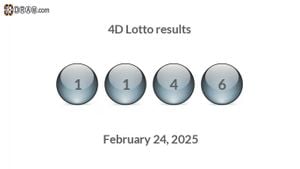The Tokyo Stock Exchange experienced notable declines on February 25, 2023, as the Nikkei average dropped significantly, reflecting broader economic uncertainties and trading pressures.
By 10 AM, the Nikkei was reported at 38,394.38, down by 382.56 points or 0.99% from the previous trading session. The number of falling stocks far exceeded those gaining, with 1,043 slipping against just 534 rising, indicating overall negative market sentiment.
Major contributing factors to this decline included heavy losses from Fast Retailing co., which alone detracted 117.19 points from the Nikkei. Other notable declining stocks included Advantest, SoftBank Group, Recruit Holdings, and NTT Data, contributing 89.7, 67.47, 52.58, and 20.06 points, respectively. The only stock making positive contributions was Mitsubishi Corporation, which added just 18.45 points to the index.
Sector-wise, out of 33 major sectors, only eight saw gains. Notable among them were wholesale and pharmaceuticals, which offered some reprieve, whereas non-ferrous metals, oil & coal, and service sectors faced heavy losses.
Market analysts pointed to the impacts of U.S. market trends, particularly within technology sectors. The indices for U.S. tech stocks, particularly the Nasdaq, had faced downward pressure due to rising interest rates and inflation concerns. This downturn spilled over to Japan, spooking traders and causing widespread sell-offs, especially among semiconductor-related stocks.
"The Nikkei average fell by over 400 yen compared to the previous trading day," reported Jiji Press, highlighting the rapid changes investors were seeing. The falling Nikkei reflects a global unease as economic indicators point to possible slowdowns.
Further contributing to trader concerns was the continued appreciation of the yen against the dollar, now hovering around 150.07 yen per dollar. This currency movement made it harder for Japanese exporters to maintain competitiveness, leading to heightened selling pressures on stocks sensitive to exchange-rate fluctuations.
“The strengthening yen is also weighing on the stock market,” stated financial experts, documenting the dual pressure of weakening global demand for exports alongside negative sentiment rooted within tech industry volatility.
Overall, the session on February 25 appears set to follow the negative trends seen just prior to the long weekend, as investors remain cautious about risk exposure amid global economic headwinds. With the Nikkei index trading around the 38,000-point mark, down over 700 points from its close on February 21, the outlook remains mixed.
Meanwhile, stock analysts are urging caution for traders as they navigate this current downturn. “Selling pressure on semiconductor and export-related stocks is likely to continue,” noted market observers. Suggestions include diversifying portfolios to hedge against potential losses as economic uncertainty looms on the horizon.
Looking forward, the market’s resilience will be tested as traders monitor developments both domestically and internationally. With the U.S. market leading the charge, Japanese indices will need to adapt to the economic tides if they wish to stabilize. This volatility showcases the interconnectedness of global markets and highlights the importance of strategic planning for investors.
While the immediate future looks challenging, seasoned investors will be watching closely to find potential opportunities amid the turmoil. The strategic responses to market changes will be pivotal for recovery as the Tokyo Stock Exchange navigates through these turbulent waters.



